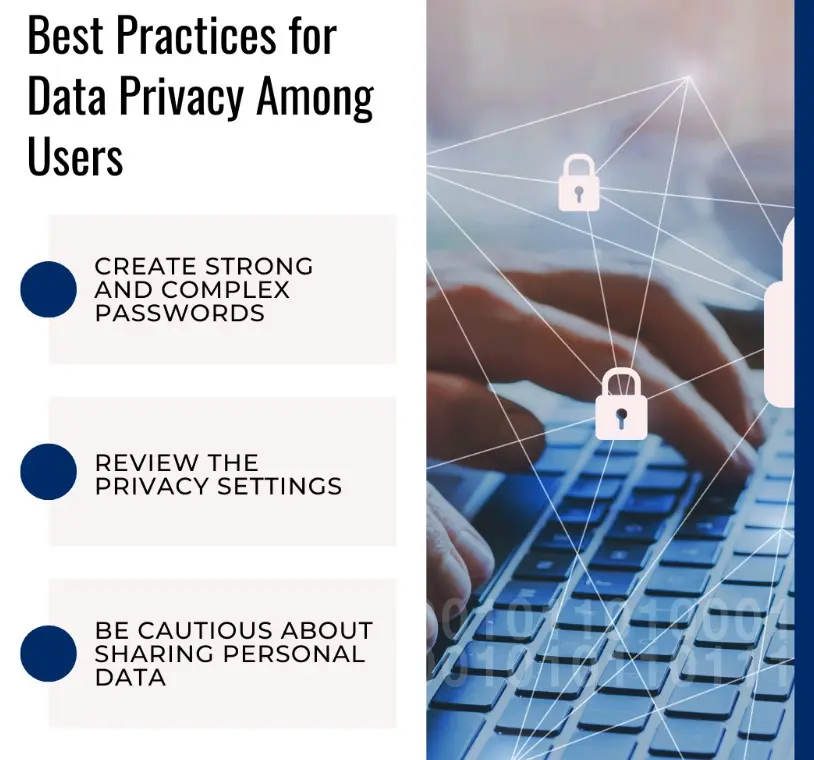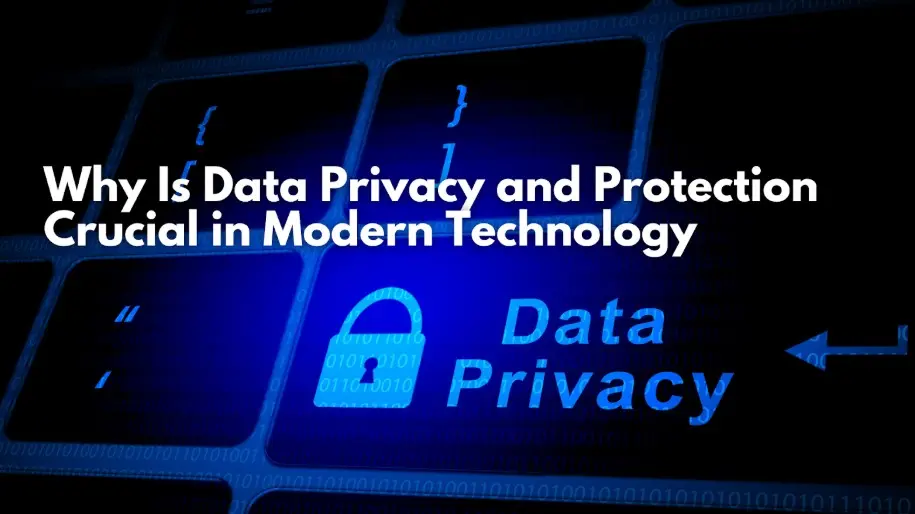While technology simplifies daily life, it often comes at the cost of personal data exposure. As we adopt digital tools, online services, and smart technologies, we are also exposing ourselves to the risk of privacy. The vast amounts of personal, financial, and behavioral data collected by businesses, governments, and even tech giants increase our vulnerability to data breaches and misuse.
This article highlights why data privacy and protection are essential, focusing on the increase in risks, law enforcement frameworks, and technological measures to ensure security in an increasingly connected world.
The Growing Value of Data in the Digital Age
Data value has increased significantly in the past few years. The sheer volume of data being generated is staggering. For example, the world will store 200 zettabytes of data by 2025. It drives businesses, governments, and people to make wise decisions, enhance experiences, and optimize operations. Each time someone shops online, interacts with any social media, or uses a mobile application, data is generated. For instance, the location tag may be minimal, but medical or financial information might be the most sensitive.
The Role of Technology in Data Protection
Solutions to data-centric problems are rapidly becoming a vital requirement for businesses today. Encryption is perhaps the best possible authentication available among access control methods without applying provided signs to the data itself. In general, encryption scrambles data, making it unreadable and unusable, even to the most determined unauthorized users.
To protect data include firewalls and intrusion detection systems, as well as secure network protocols. Such technologies monitor and filter incoming and outgoing traffic, so that only approved users may gain access to sensitive data. Emerging technologies such as blockchain are also being explored for their potential in data protection.
One critical component often overlooked in data protection is email marketing. With businesses increasingly relying on email as a primary communication channel, securing email communications has never been more essential. Sparkle.io is an email marketing platform that focuses on email deliverability and security. https://sparkle.io/email-deliverability/ ensures that businesses’ communications reach recipients’ inboxes without falling prey to spam filters or cyberattacks.
The Risks of Data Exposure
Cyberattacks are becoming more sophisticated, frequent, and damaging. One data breach can cost companies millions of dollars in damages, fines, and reputational damage. Consumers also suffer from identity theft, fraud, and emotional distress when their personal information is exposed.
Over the last few years, we have seen big data breaches affecting millions of people. In 2017, the Equifax breach leaked social security numbers, birth dates, and addresses for around 147 million individuals. Another recent incident is that of Facebook when the user data was accessed by third-party companies without their consent and, thereby, violated the privacy of millions of users. This is where real risks and consequences are exposed through data leakage.
The effects of compromised data are far-reaching. Cybercriminals can use the stolen data for financial gain, committing fraud, identity theft, and even blackmail. Hackers can also exploit compromised information for more targeted attacks, often impacting individuals long after the breach occurs.
The advancement of technology brings sophistication to cyberattacks. Hackers use sophisticated methods such as ransomware, phishing, and malware to break into systems and obtain sensitive data. Organizations need to be one step ahead of these threats, with strong data protection measures that can help prevent damage.

Legal and Regulatory Requirements
Governments have reacted to this fast-growing threat by providing the much-needed legal and administrative features required to protect consumer information and guidance about privacy issues, such as the law of GDPR or CCPA in California.
The General Data Protection Regulation, effective since 2018, is a comprehensive regulation that applies to organizations handling the personal data of EU citizens, regardless of where the company is based. It focuses on giving individuals more control over their data and enforces strict rules for data collection, processing, and storage. Non-compliance with GDPR can result in hefty fines, making it essential for businesses to stay compliant.
Similarly, the CCPA enacted in California allows consumers to know what personal data is being collected about them, provides access to that data, and demands deletion of that data. The consumer is also allowed the right to opt out of having their data sold. Such regulations have led to data privacy rules globally and encouraged companies to make more transparent and accountable data practices.
These are the legal frameworks that help encourage data privacy. They compel the business to conduct better security measures and ensure rights are honored for consumers. However, the process of complying is not an overnight thing, with laws constantly developing to meet newer technologies and newer threats.
Ethical Implications of Data Misuse
Ethics plays an important role in data privacy. The moment the companies misuse and mishandle customer information, there is a break of trust. The data generated for the sole purpose of streamlining customer service experiences can become highly exploitative of financial and political motives. Not only do the people get damaged but also their company’s reputation gets marred.
The misuse of personal information as highlighted in the case of Facebook and Cambridge Analytica, whereby political elections were interfered with through using data from its users, leads to important questions: How much should individuals be able to own and control over their data? Can companies take advantage of their consumer’s information for free use? These issues pose ethical problems concerning data protection and privacy and lead to companies acting in responsible ways concerning the information being handled.
Best Practices for Data Privacy and Protection
While technology plays a key role in data protection, businesses and consumers must also follow best practices to minimize the risk of data exposure.
For Businesses:
- Encrypt sensitive data: Ensure that both customer and business data are encrypted during transmission and storage.
- Implement access controls: Limit access to sensitive data to only those employees who need it to perform their jobs. Use multi-factor authentication (MFA) to strengthen access security.
- Regularly audit and update security protocols: Technology and cyber threats evolve rapidly, so businesses should continually monitor their systems for potential vulnerabilities.
- Training workforce: Data privacy should also be made more important for their security, and teaching them the susceptibility of various common attacks such as phishing attacks in cyber security.
For Users:
- Strong and Complex Passwords; Avoid easily guessable. Consider using the password manager
- Review Privacy Settings: Check if the app/social media platform/services have a basic privacy setting installed.
- Be very careful about disclosing personal information: Share personal information with trusted sources only and refrain from revealing sensitive information on insecure websites or public forums.
Conclusion
These days, privacy and protection regarding data are no longer optional. They have become the basis of trust, security, and legal compliance in today’s digital world. The more advanced technology becomes, the more it demands effective data protection strategies. Businesses and customers have a part to play in securing personal information. We can ensure a safer, more secure digital future for all by staying informed and adopting the best practices outlined in this article.
FAQs
How would businesses stay innovative while still complying with data privacy laws?
Privacy-by-design and continuous compliance audits allow businesses to innovate, while still protecting data. Regular internal audits combined with employee training keep businesses compliant without stifling the growth of innovation.
What damage can a data breach cause besides the monetary loss?
It could single handedly tarnish the reputation of the company and destroy the trust of customers, which may lead to an ongoing business loss. It brings legal scrutiny and may also lead to regulatory fines and considerably affects a brand’s credibility.
How advanced technologies like AI and blockchain can improve our data protection strategies?
AI is going to proactively detect and prevent any cyber-attack by doing real-time data analysis at a regular interval; then, it will respond quickly. Blockchain guarantees data to be opened and unchanging, which means no one can meddle with that particular data or has access to it.
Also Read-Best Practices for Preparing Technical Files for FDA 510(k) Submissions
